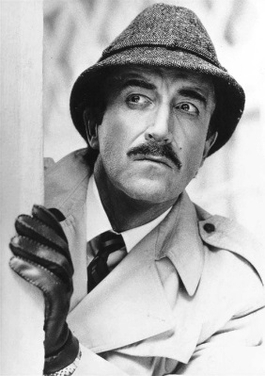 |
| Peter Sellers as Inspector Clouseau |
Drugs
With drug law, especially in regard to
marijuana slowly being relaxed in many countries, this is a hot topic. How does
drug use, legal or otherwise, feature in comedy?
Drugs are commonly found in comedy and
humoristic programming, particularly when aimed at a young-adult and older
teenage audience. Shows such as American Dad, Family Guy, South Park, How I
Met Your Mother and It's always Sunny in Philadelphia feature
regular mention and depiction of drug use. Often this is not limited to
marijuana or alcohol use and abuse, but stretches to crack cocaine or even
crystal meth, which is often considered the most damaging and most addictive
drug in existence. Usage of these drugs is sometimes condoned and sometimes is
shown to lead to damaging effects, however it mostly serves a humorous purpose.
Racism
This is a sensitive topic. Racism is
illegal is most countries but it still is a recurring element in humour.
British humour has included racism (both to others and in self-deprecation) and
American humour has included it more and more over the last decade or so. This
can be in any form ranging from subtle remarks to outright racism towards
characters or sometimes real-life people or groups. Generally this racism can
be against any race, so a character may be derogatory against people of their
own race, or against other races. More and more often however, racism is shown
to backfire.
Pedophilia
 Although in most countries pedophilia and
the depiction of child-porn is illegal and generally frowned upon, some shows
do tend to stretch the boundaries as far as they can. This often proves easiest
for animated shows such as South Park since the depiction is obviously
not real and no actual children are needed to portray the scene. This results
in an entire episode centered around an 8-year old trying to get a blow-job
from another minor and another show where 8 or 9 year olds are being treated
for sex addiction. Family Guy features Herbert the Pervert as a
recurring character, but he is never successful in his attempts to 'get' boys.
Although in most countries pedophilia and
the depiction of child-porn is illegal and generally frowned upon, some shows
do tend to stretch the boundaries as far as they can. This often proves easiest
for animated shows such as South Park since the depiction is obviously
not real and no actual children are needed to portray the scene. This results
in an entire episode centered around an 8-year old trying to get a blow-job
from another minor and another show where 8 or 9 year olds are being treated
for sex addiction. Family Guy features Herbert the Pervert as a
recurring character, but he is never successful in his attempts to 'get' boys.
Generally it can be said that comedy does
have a little more freedom than other forms of media, since there is often some
form of legal protection in place securing a show's right to free speech,
parody and ridicule, which is harder called upon when making a 'serious' show
or film. Especially animated comedies can in some cases stretch the boundaries
further, for the obvious reason there are no actual actors that might get
involved in uncomfortable or dangerous situations. Shock laughs can also be used
in comedy but is often frowned upon by the public as well as other comedians
and writers.
There are many other laws which may or may
not be broken or bent in comedy and humour but we can't discuss them all here,
so we will cover those later in another post.

Geen opmerkingen:
Een reactie posten
Leave a message!